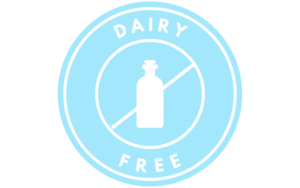Protein is a cornerstone of a healthy diet. It’s the building block of all living cells and is essential for building and repairing tissues, making enzymes and hormones, and supporting immune function. But with so much conflicting information out there, it’s hard to know: How much protein do I need a day?
Key Takeaways:
- Protein is essential for building and repairing tissues, among other vital functions.
- The Recommended Dietary Allowance (RDA) for protein is 0.8 grams per kilogram of body weight.
- Needs vary depending on lifestyle, age, and health goals.
Table of Contents
Understanding Protein and Its Importance
What is Protein?
Protein is more than just a macronutrient; it’s a vital component of every cell in the body. From the Greek word protos, meaning “first,” protein is fundamental to our biology. It’s crucial for the growth and repair of tissues, making it a staple in the diet of not just athletes and bodybuilders, but everyone aiming for a healthy lifestyle.

The Role of Protein in the Body
Proteins are made up of amino acids, which can be envisioned as the beads on a string. These “beads” align in different ways to perform a variety of functions in the body, including:
- Muscle repair and growth: After exercise, proteins repair muscle fibers, facilitating growth and strength.
- Enzyme production: Many enzymes are proteins that increase the rate of chemical reactions in the body.
- Hormone regulation: Proteins are involved in the creation and regulation of hormones, which act as messengers in the body.
For more on the importance of protein, explore Whey Protein Ingredients
How Much Protein Do You Really Need?
Understanding the RDA for Protein
The Recommended Dietary Allowance (RDA) for protein is set at a modest 0.8 grams per kilogram of body weight. This amount is the minimum required to prevent deficiency, but individual needs may vary greatly depending on factors such as age, sex, weight, and activity level.
Calculating Your Protein Needs
Whether you’re looking to maintain your current weight, shed a few pounds, build muscle, or enhance your athletic performance, understanding how much protein you need can help you reach your health and fitness goals.
Use this simple Protein Intake Calculator to estimate your daily protein requirements. It’s a quick and easy way to personalize your nutrition plan!
Remember, these values are estimates and can vary based on other factors such as age, sex, and overall health. For a tailored nutrition plan, consult with a healthcare professional or a registered dietitian.
Protein (g) = Weight (kg) x 0.8 g/kg
For those in the US:
Protein (g) = Weight (lb) x 0.36 g/lb
Daily Protein Needs
| Sex | Age | Height | Weight | Goal | Protein Recommendation (grams) |
|---|---|---|---|---|---|
| Male | 19-30 | 5’9″ | 150 lb | Maintenance | 54 – 68 |
| Female | 19-30 | 5’5″ | 130 lb | Weight Loss | 46 – 58 |
| Male | 31-50 | 6’0″ | 180 lb | Muscle Gain | 65 – 81 |
| Female | 31-50 | 5’6″ | 150 lb | Endurance Training | 54 – 68 |
| Male | 51+ | 5’8″ | 165 lb | General Health | 59 – 74 |
| Female | 51+ | 5’4″ | 140 lb | General Health | 50 – 63 |
For a more detailed calculation, consider visiting Harvard Health’s insights on daily protein requirements.
Protein Intake for Different Lifestyles
Sedentary vs. Active Individuals
The RDA for protein may suffice for sedentary individuals, but those who are more active may require additional protein to support muscle repair and growth. The following table outlines the differences:
| Lifestyle | Protein Needs (g/kg) |
|---|---|
| Sedentary Adult | 0.8 |
| Recreational Athlete | 1.1-1.4 |
| Competitive Athlete | 1.2-1.4 |
| Bodybuilding | 1.4-1.7 |
| Growing Teen Athlete | 1.4-1.7 |
Protein Needs During Pregnancy
Pregnant women should increase their protein intake to support fetal development. The recommendation is between 75 to 100 grams of protein per day. Always consult with a healthcare provider for personalized advice.
For a comprehensive look at protein’s role in muscle building, check out this guide on Protein Powder for Muscle Building
Sources of Protein: Variety and Quality
High-Quality Protein Sources
When it comes to protein, quality is just as important as quantity. High-quality protein sources contain all the essential amino acids your body needs. Here’s a list of both animal and plant-based sources:
| Food Source | Protein (g) |
|---|---|
| Chicken breast (3 oz) | 26 |
| Salmon (3 oz) | 22 |
| Lentils (1 cup) | 18 |
| Quinoa (1 cup) | 8 |
| Almonds (1 oz) | 6 |
The “Protein Package”
It’s essential to consider the “protein package”—the fats, carbohydrates, vitamins, and minerals that come with your protein sources. Opt for sources that are low in saturated fat and processed carbohydrates, and high in nutrients.
For delicious ways to incorporate more protein into your meals, discover Whey Protein Recipes: A Delicious Way to Boost Your Protein Intake.
Protein and Weight Management
When it comes to weight loss or maintenance, protein can be a valuable ally. A higher protein intake can increase satiety, reduce hunger, and preserve lean muscle mass during weight loss. However, it’s not a one-size-fits-all solution. The effectiveness of protein in weight management depends on overall diet quality and calorie intake.
Balancing Protein with Other Macronutrients
While increasing protein, it’s important to balance your intake with other macronutrients. Here’s a simple guide to help you structure your meals:
| Meal Component | Percentage of Plate |
|---|---|
| Protein | 25% |
| Vegetables | 50% |
| Whole Grains | 25% |
Protein for Athletes and Active Individuals
Athletes and those with a more active lifestyle have higher protein needs to support recovery and muscle synthesis. The American College of Sports Medicine recommends 1.2 to 2.0 grams of protein per kilogram of body weight per day for athletes, depending on training intensity.

For insights into protein needs for performance, consider the Mayo Clinic’s discussion on protein needs for active individuals.
Protein-Rich Diets and Health
High-protein diets are often touted for their weight loss benefits, but their impact on long-term health is a subject of ongoing research. Some studies suggest potential benefits for cardiovascular health, while others caution against the risks associated with excessive meat consumption.
The Health Impact of Protein Sources
The source of your protein can have significant health implications. Here’s a comparison of different protein sources and their associated health impacts:
| Protein Source | Health Impact |
|---|---|
| Red Meat | Higher risk of heart disease and certain cancers |
| Poultry | Lower risk compared to red meat |
| Fish | Rich in omega-3 fatty acids, beneficial for heart health |
| Plant-Based | Associated with lower risk of chronic diseases |
Frequently Asked Questions
How does protein affect kidney health?
For individuals with pre-existing kidney conditions, a high-protein diet may exacerbate kidney problems. However, for healthy individuals, there is little evidence that a high-protein diet is harmful to kidney function.
Can you have too much protein?
Excessive protein intake can lead to digestive issues, dehydration, and in severe cases, kidney damage. It’s important to follow recommended guidelines and consult with a healthcare provider if you’re considering a significant increase in protein intake.
What are the best times to consume protein?
To maximize muscle repair and growth, it’s beneficial to distribute protein intake evenly throughout the day and consume protein-rich foods after exercise.



